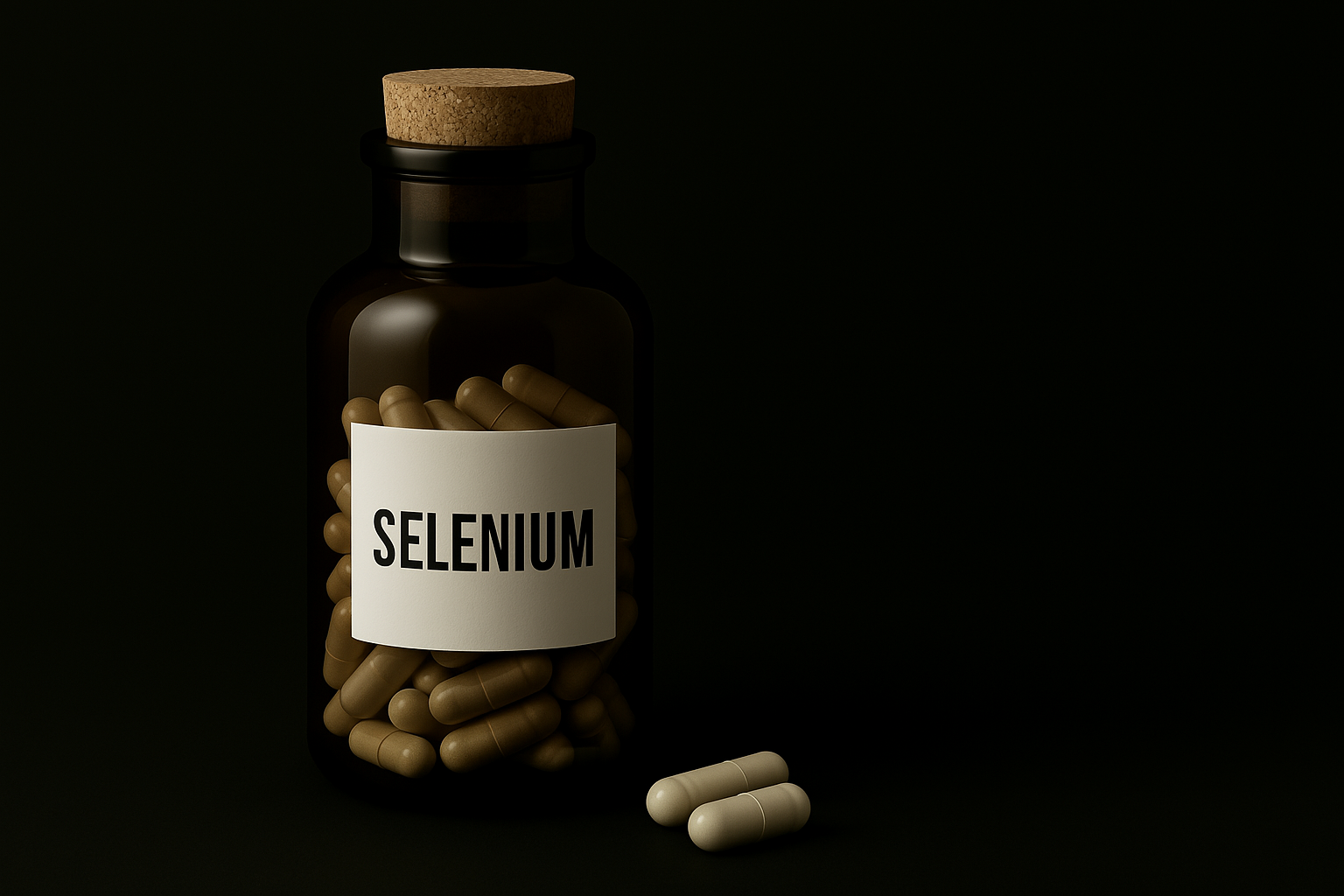If you’ve never given selenium much thought, you’re not alone. Most people know about iron, calcium, and magnesium — but selenium? It’s the quiet defender behind your immune system, thyroid function, and antioxidant protection.
In this guide, you’ll discover why selenium matters more than you might think, how much you need, where to find it, and when supplements can help.
🛡️ What is Selenium?
Selenium is a micronutrient — meaning your body only needs tiny amounts — but those tiny amounts are absolutely essential.
It acts as a powerful antioxidant, protecting your cells from damage, while also:
- 🛡️ Strengthening immune system function
- 🔥 Supporting thyroid hormone metabolism
- ⚡ Helping with fertility and reproductive health
- 🧠 Promoting brain and cognitive function
- 🩹 Assisting in DNA synthesis and repair
Without enough selenium, these systems can start to falter, often silently.
🚨 Signs You Might Be Low in Selenium
Selenium deficiency is rare in the UK but can happen, especially if your diet is limited. Symptoms may include:
- Feeling tired or sluggish
- Frequent infections
- Brain fog or memory issues
- Weak muscles
- Poor thyroid health (like underactive thyroid symptoms)
Low selenium levels have also been linked to heart problems and weakened immune responses.
🥜 Selenium-Rich Foods to Add Today
Good news: you can boost your selenium levels naturally without supplements if you eat the right foods. Top selenium-rich foods include:
- Brazil nuts (the absolute champion — just 1–2 nuts a day can hit your target)
- Tuna
- Sardines
- Eggs
- Sunflower seeds
- Brown rice
For most people, a balanced diet that includes these foods is enough to meet the recommended intake.
👉 According to the NHS, selenium needs can usually be met through food, but certain groups — like people with digestive issues — may need extra support.
💊 When Should You Consider a Selenium Supplement?
You might want to consider a selenium supplement if:
- You rarely eat fish, nuts, or wholegrains
- You have a diagnosed thyroid disorder
- You’re vegetarian or vegan with limited selenium sources
- You’re taking a multivitamin and want to check if it covers selenium (read our Best Multivitamins UK guide)
Caution:
Too much selenium can be toxic. Stick to safe doses — usually no more than 200 mcg daily from supplements unless advised otherwise by a doctor.
⚖️ The Bottom Line
Selenium might not grab headlines like iron or magnesium, but it’s absolutely crucial for health.
From fighting inflammation to keeping your thyroid in check, it’s a tiny mineral that pulls heavyweight punches.
Make sure you’re getting your daily dose through smart food choices — or through a carefully chosen multivitamin if needed.
👉 Like this article? Share it on Facebook 💬

Leave a Reply